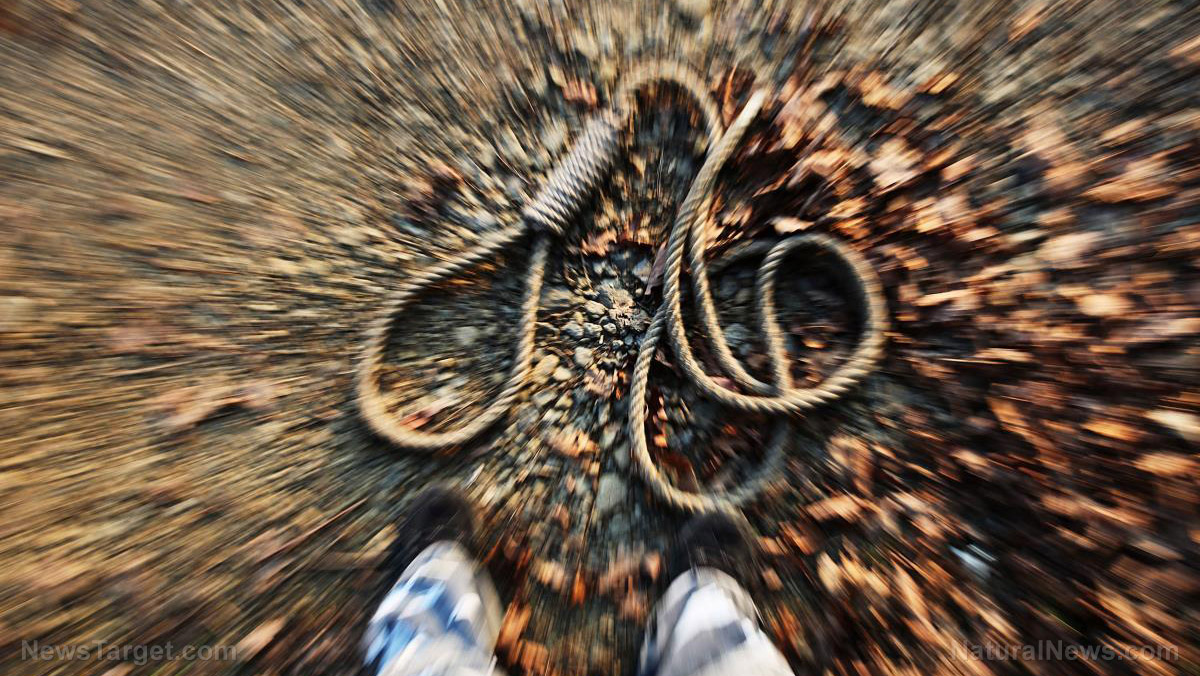Augmented reality software has real privacy implications: New app scans faces in pictures and automatically connects to their social media accounts
01/15/2018 / By Zoey Sky

Do we really need an app that makes it easier for complete strangers to identify us and access our social media profiles?
Blippar, a firm based in London, has recently released an augmented reality (AR) app that instantly “scans faces and brings up a profile with information about the person including links to their social media profiles.”
The AR app, called Augmented Reality Face Profile, recognizes more than 400,000 public figures. Blippar claims that the app has a “more than 99 percent accuracy rate.” The technology is advanced enough to distinguish celebrities such as the Olsen twins (actresses), the Brownlee Brothers (British Olympic runners), and Jedward (Irish pop duo).
Augmented Reality Face Profile mostly identifies public figures such as “actors, politicians, musicians, singers, entrepreneurs, authors, sports stars, and scientists. Blippar adds that the profiles are a “strictly opt-in experience.”
The app merges “rapid computer vision and artificial intelligence” to recognize faces. The system might even be used for security checks for building access and even online banking.
Danny Lopez, the company’s chief operating officer, says that the facial recognition feature of smartphones helps satisfy natural human curiosity. He added, “The technology’s accuracy in distinguishing even identical twins is the solution of a complex challenge for the industry, and the wider applications are diverse and game-changing, from building access to smart networking, security, and fraud prevention.” (Related: Shady Secret app that let people post anonymous social media bullying messages now shut down; so why is Wikipedia still online?)
The Blippar app is available for both iOS and Android.
How does Augmented Reality Face Profile work?
The Augmented Reality Face Profile lets users scan faces to reveal more information about them. App users can “add connections to things that already exist in Blippar’s ‘knowledge graph,'” such as “objects, concepts, and entities.” When scanning the faces of public figures, their faces are “discoverable” using data from the knowledge graph, which collates information from “publicly accessible sources.”
Ambarish Mitra, co-founder and CEO at Blippar, explains that Augmented Reality Face Profiles can revolutionize how “we communicate and express ourselves.” Mitra adds that although the human face is the “most expressive form of communication,” the app digitizes the whole process.
Combined with facial recognition technology and the knowledge graph, Blippar shares that the app can let individuals express themselves through their various interests such as “their hobbies, opinions, key fun facts,” and other details about their life.
While the company reasons that the app is “a new, unique and fun way of showing who you are and of learning more about others,” it’s not hard to imagine that there might be people who will take advantage of this technology and use it to harass and bully unsuspecting individuals.
Tips for helping children deal with cyberbullying
While we can’t protect children from all the dangers that they might face online, the tips below can help you teach them how to deal with cyberbullying:
- Let them know it’s okay to ask for help — If you notice that they’re acting out of sorts (e.g. not sleeping well, refusing to go to school, etc.), let them know that they can talk to you about anything.
- Make them a part of the solution — Involve your kids while you’re trying to resolve the situation. This can help them regain their dignity and sense of control.
- Respond thoughtfully — Parents who don’t think things through can make matters worse for victims of cyberbullying. Always consider any move you make because it can affect your child.
- Listen to both sides of the story — While your instinct might be to believe your child’s side version of the story, try to listen to other accounts as well to get the whole picture.
- Listen to them — It can be hard to discuss situations like this, and sometimes simply having someone to talk to can be a great help to victims of cyberbullying.
You can read more articles about how to use technology wisely at FutureScienceNews.com.
Sources include:
Tagged Under: apps, AR technology, Augmented Reality, Augmented Reality Face Profiles, Augmented Reality technology, bullying, celebrities, computing, cyberbullying, Facial recognition, facial recognition app, facial scanning, Glitch, privacy, Smartphones, Social media, Software, surveillance, technology
RECENT NEWS & ARTICLES
COPYRIGHT © 2017 INSANITY NEWS


















